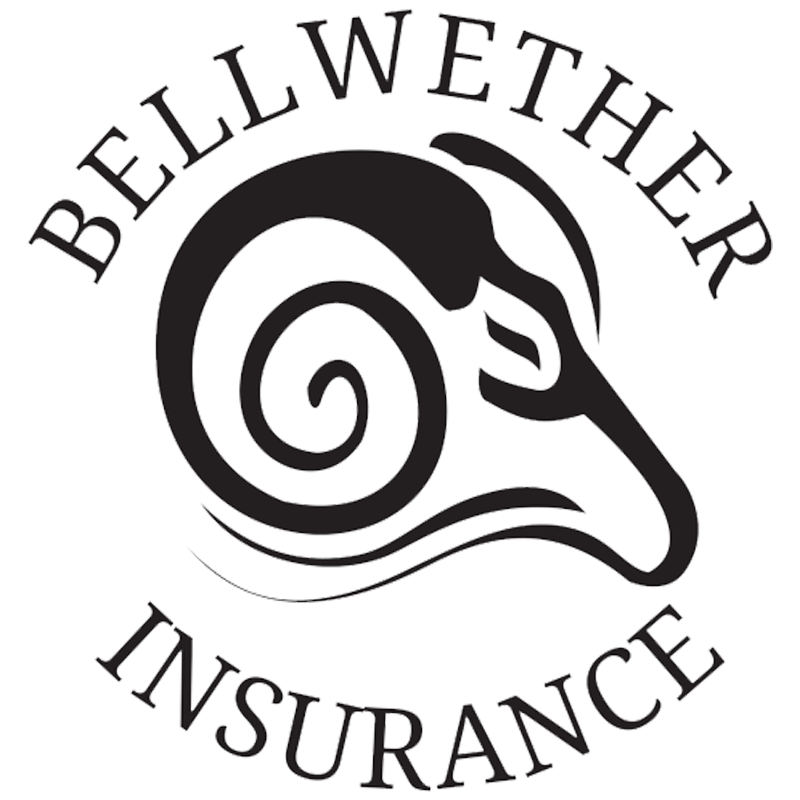Ohio Internal Medicine Business Insurance

Index
Contact Us
Phone
216-600-2828
Location
100 N. Center Street PO Box 627 LaGrange, OH 44050
In today's landscape, internal medicine practices need to be well-protected against various risks. Business insurance plays a crucial role in
safeguarding your practice, ensuring that you can focus on patient care while minimizing potential financial setbacks. This article aims to provide comprehensive information on the various aspects of business insurance relevant to internal medicine in Ohio.
Understanding the Basics of Business Insurance
Business insurance encompasses a variety of policies designed to protect your practice from unforeseen circumstances that could harm its operations or finances. Understanding its fundamentals is essential for any medical practitioner.
The Importance of Business Insurance in Internal Medicine
For internal medicine practitioners, business insurance is not just a safety net; it is a vital component of risk management. Without it, practices can face significant financial hardships arising from malpractice claims, property damage, or employee-related issues.
The healthcare landscape is fraught with potential liabilities. Patient interactions, treatment decisions, and even the office environment can all present risks that could result in costly legal actions or settlements. Thus, investing in the right insurance could mean the difference between a thriving practice and financial ruin.
Moreover, the evolving nature of healthcare regulations and standards adds another layer of complexity to risk management. Internal medicine practitioners must stay abreast of changes in laws and compliance requirements, which can vary by state and specialty. Business insurance not only provides financial protection but also often includes resources for legal support and compliance guidance, ensuring that practitioners can navigate these challenges effectively. This proactive approach can safeguard your practice's reputation and operational integrity in a competitive marketplace.
Key Terms and Concepts in Business Insurance
Familiarizing yourself with essential insurance terminology can enhance your understanding of policies and their coverage. Key terms include:
- Premium: The amount you pay for your insurance coverage.
- Deductible: The amount you must pay out of pocket before insurance kicks in.
- Exclusions: Specific conditions or circumstances that are not covered by the policy.
- Liability: Legal responsibility for damages incurred by your practice.
Grasping these concepts prepares you to make informed decisions when selecting policies. Additionally, understanding the nuances of different types of coverage—such as general liability, professional liability, and property insurance—can further empower you to tailor your insurance portfolio to meet the specific needs of your practice. For instance, while general liability insurance covers third-party claims for bodily injury or property damage, professional liability insurance (also known as malpractice insurance) protects against claims of negligence or inadequate performance in your professional duties. This distinction is crucial for internal medicine practitioners who may face unique challenges in their patient care responsibilities.

Types of Business Insurance for Internal Medicine Practices
Internal medicine practices often require multiple types of insurance coverage to address different aspects of risk. Understanding each type can guide you in selecting the right protection.
Professional Liability Insurance
Professional liability insurance, often referred to as malpractice insurance, protects against claims of negligence, errors, or omissions in the course of providing professional services. In the field of internal medicine, the stakes are high; even a small mistake can have serious consequences.
This insurance safeguards your assets and reputation, covering legal fees, settlements, and judgments if a claim is made against you. It's vital to carry sufficient limits to align with the risks inherent in your practice. Additionally, many insurers offer risk management resources, which can help you implement best practices to minimize the chances of a claim being filed against you. Engaging in continuous education and training can also enhance your practice's safety protocols, ultimately leading to better patient outcomes and reduced liability risks.
General Liability Insurance
General liability insurance provides coverage for claims of bodily injury, property damage, and personal injury that may occur in your practice. For example, if a patient slips and falls in your waiting room, this insurance helps cover medical expenses and legal costs arising from such incidents.
Having general liability insurance is an essential safeguard, ensuring your practice isn't financially incapacitated by unforeseen accidents. Furthermore, this type of insurance can extend to cover incidents that occur off-site, such as during community health events or outreach programs, where your practice is representing itself. This added layer of protection can be crucial in maintaining your practice's financial health and reputation, allowing you to focus on delivering quality care without the constant worry of potential liabilities.
Workers' Compensation Insurance
Workers' compensation insurance is crucial for any business with employees, including internal medicine practices. It protects your staff by covering medical expenses and lost wages in case of job-related injuries or illnesses.
In Ohio, it's a legal requirement for most employers to carry workers' compensation insurance, making it essential for compliance as well as for safeguarding your practice’s workforce. Beyond the legal obligations, providing workers' compensation can enhance employee morale and retention, as staff members feel valued and secure knowing they are protected in case of an accident. Additionally, implementing workplace safety programs can further reduce the likelihood of injuries, potentially lowering your insurance premiums over time. This proactive approach not only benefits your employees but also contributes to a more efficient and productive practice environment.
How to Choose the Right Business Insurance in Ohio
Choosing the right business insurance can be daunting, but a structured approach can simplify the process significantly.
Assessing Your Practice's Risks
The first step in selecting appropriate insurance is to conduct a thorough risk assessment of your practice. Consider factors such as:
- The types of services provided
- The number of employees
- Your location and environment
- Patient demographics
This evaluation will help you identify which types of coverage are necessary for your specific practice. Additionally, think about potential liabilities that could arise from your operations. For example, if you provide specialized services, you may face unique risks that require tailored coverage. Engaging with a risk management consultant can also provide deeper insights and help you develop a comprehensive risk profile that accounts for both common and uncommon scenarios.
Comparing Insurance Providers
Once you've assessed your risks, it’s time to research and compare various insurance providers. Look for companies with solid reputations and expertise in healthcare insurance. Request quotes, but don’t decide solely based on price; also consider the quality of service, claims handling, and coverage options offered.
Online reviews and recommendations from other practitioners can provide valuable insights into different providers’ strengths and weaknesses. Additionally, consider reaching out to local business associations or chambers of commerce for referrals to reputable insurance agents who specialize in your industry. A knowledgeable agent can help you navigate the complexities of insurance policies and may even have access to exclusive deals or packages tailored for healthcare providers.
Understanding Policy Terms and Conditions
Carefully read the terms and conditions of any policy you are considering. Look for coverage limits, exclusions, and any endorsements that may apply. If you're unsure about any provision, ask for clarification.
Understanding the fine print can save you from rude surprises when you need to file a claim. Moreover, it’s wise to periodically review your policy to ensure it continues to meet your needs as your practice evolves. Changes in the law, your patient base, or the services you offer can all impact your insurance needs. Establishing a relationship with your insurance agent can facilitate ongoing discussions about your coverage and help you stay informed about any changes in the insurance landscape that may affect your practice.
The Cost of Business Insurance for Internal Medicine Practices
The cost of business insurance can vary significantly depending on numerous factors. Understanding what influences these costs will help you navigate the market more effectively.
Factors Influencing Insurance Premiums
Several factors can impact the premiums for business insurance, including:
- Your practice's size and number of employees
- Your location and the local claims history
- The types of procedures performed
- Your claims history
Being aware of these factors enables you to anticipate costs and budget accordingly. For instance, larger practices with more employees may face higher premiums due to increased operational risks. Additionally, practices located in areas with a high frequency of claims might see elevated rates, as insurers account for the likelihood of future payouts. Furthermore, the complexity and risk associated with specific procedures can also drive up costs, making it essential for practices to evaluate their service offerings carefully.
Ways to Lower Your Insurance Costs
Reducing insurance costs doesn't necessarily mean compromising on coverage. Consider the following strategies:
- Enhancing your practice's safety measures to reduce risks.
- Bundling policies for potential discounts.
- Maintaining a clean claims history.
- Shopping around for the best rates periodically.
Implementing these strategies can help keep your insurance expenses manageable. For example, investing in staff training and safety protocols can significantly lower the risk of incidents, which in turn may lead to lower premiums. Additionally, many insurance providers offer discounts for practices that bundle multiple policies, such as general liability and property insurance, which can create substantial savings. Regularly reviewing your coverage and comparing quotes from different insurers is also a proactive approach, ensuring that you are not only getting the best price but also the most suitable coverage for your unique practice needs.

Filing claims can be a daunting aspect of business insurance, but understanding the process can alleviate some of the stress associated with it. A well-informed approach not only streamlines the claims experience but also empowers you to advocate effectively for your business’s needs.
When to File a Claim
Knowing when to file a claim is critical for the health of your practice. You should file as soon as you realize that an incident or claim has the potential to exceed your policy's deductible amount. Delaying the claims process can lead to complications later on, such as increased costs or potential denial of coverage. Additionally, some policies have time limits for filing claims, so being prompt is essential.
Always consult your insurance provider if you're uncertain whether a situation warrants a claim. They can provide guidance based on your specific policy and help you understand the nuances of your coverage, ensuring that you make informed decisions that protect your interests.
Understanding the Claims Process
The claims process typically involves several steps:
- Notify your insurance company about the incident.
- Document all relevant information and evidence.
- Submit any required reports or forms.
- Cooperate with investigations and provide necessary documentation.
Being organized and proactive in managing your claims can expedite the process and help ensure that you receive the coverage you deserve. Keep a detailed record of all communications with your insurer, including dates, times, and the names of representatives you speak with. This documentation can be invaluable if disputes arise or if you need to follow up on the status of your claim.
Moreover, understanding the specific terms and conditions of your policy can help you navigate the claims process more effectively. Familiarize yourself with any exclusions or limitations that may apply, as this knowledge can prevent surprises down the line. Engaging with a claims adjuster can also provide clarity, as they can explain the rationale behind their assessments and decisions, ensuring that you remain informed throughout the process.
Legal Requirements for Business Insurance in Ohio
Being aware of the legal landscape regarding business insurance in Ohio is essential for compliance.
State Regulations for Business Insurance
In Ohio, there are specific regulations that dictate what types of business insurance you must carry, particularly for public-facing services like healthcare. Generally, professional liability insurance and workers' compensation insurance are mandated. Additionally, businesses that operate vehicles for commercial purposes are required to have commercial auto insurance, which protects against liabilities arising from accidents involving those vehicles. This is particularly crucial for delivery services, construction companies, and any business that relies on transportation as part of their operations.
Understanding these regulations helps ensure that your practice remains compliant and avoids fines or legal repercussions. It's also important to note that certain industries may have additional insurance requirements based on their specific risks. For example, contractors might need to carry surety bonds, while businesses in the food industry may require product liability insurance to cover claims related to foodborne illnesses. This layered approach to insurance ensures that businesses are adequately protected against a variety of potential risks.
Penalties for Non-Compliance
Failure to adhere to state regulations regarding business insurance can result in significant penalties, including fines and potential lawsuits. Moreover, the inability to prove you have proper coverage can damage your practice's reputation. In Ohio, the Bureau of Workers' Compensation actively monitors compliance, and businesses found without the necessary coverage may face not only financial penalties but also restrictions on their ability to operate legally. This can lead to a loss of clients and contracts, as many organizations require proof of insurance before engaging in business.
Being proactive in understanding and fulfilling these requirements will protect both your financial interests and professional standing. Regularly reviewing your insurance policies and staying updated on any changes in state laws is essential. Engaging with a knowledgeable insurance agent who specializes in business coverage can provide valuable insights and help tailor a policy that meets your specific needs while ensuring compliance with Ohio's legal requirements. This vigilance not only safeguards your business but also enhances your credibility in the marketplace, establishing trust with clients and partners alike.
Frequently Asked Questions About Business Insurance
To further enhance your understanding of business insurance, let's address some frequently asked questions pertaining to internal medicine practices.
Can I Operate Without Business Insurance?
While technically possible, operating without business insurance is highly inadvisable. The risks associated with providing medical services warrant comprehensive coverage to protect your assets and provide financial security in case of unforeseen incidents.
What Does Business Insurance Typically Cover?
Business insurance can cover a wide range of situations, including:
- Malpractice claims
- Property damage
- Employee injuries
- Costs associated with lawsuits
It's vital to review the specifics of each policy to understand what is included and what is excluded.
How Often Should I Review My Business Insurance Policy?
Your business insurance policy should ideally be reviewed annually or whenever significant changes occur in your practice. Factors such as expansion, a change in services offered, or staff turnover can all necessitate adjustments to your coverage.
Regular reviews ensure that your financial protection keeps pace with the evolving landscape of your practice.
In conclusion, securing the right business insurance for your internal medicine practice in Ohio is vital for effective risk management. By understanding the basics, exploring different types of coverage, and navigating the claims process correctly, you can ensure that your practice is well-equipped to face any challenges that may arise.


